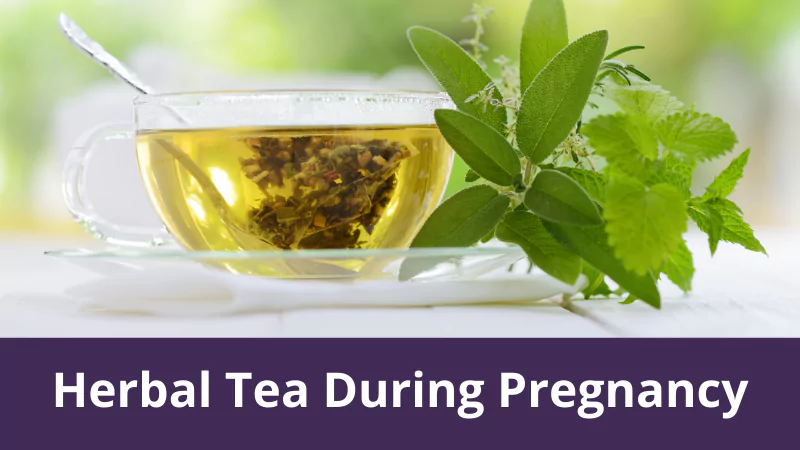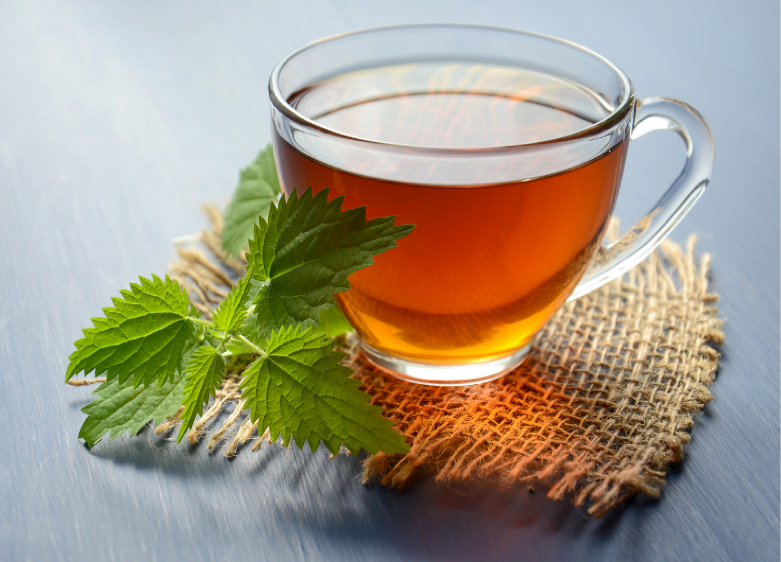Which teas are safe to drink?
Herbal Tea has been praised for centuries as being a nourishing health elixir. Tea contains many nutrients and antioxidants that can help to boost your immune system and assist with various bodily functions. That’s why many pregnant women seek out herbal teas as a source of comfort and for the many health benefits that come along with drinking a cup or two each day. Drinking the right tea can help with morning sickness, energy levels or even contribute to a less painful labour. But which teas are safe to drink during pregnancy and which should be avoided? Here’s a guide to get you started.
Best teas to drink during your first and second trimester
- Ginger Tea
Ginger tea is a wonderful drink for helping to alleviate symptoms of morning sickness and digestive issues. Ginger contains two specific compounds, gingerols and shogaols. These compounds are known for easing stomach discomfort by interacting with receptors within the digestive system [1]. It’s also worth noting that ginger tea is known to be safe to drink while breastfeeding.
Brewing Tip: Steep 5 grams of raw ginger root in hot water. Raw ginger root contains higher quantities of the gingerol compound.
- Lemon Balm Tea
Lemon Balm is a calming tea that can help to aid with feelings of anxiousness, as well as nausea and insomnia. Specifically, Lemon Balm contains a compound called rosmarinic acid. Studies have shown that rosmarinic acid may contribute to an increase in gamma-aminobutyric acid (GABA) in the brain. Low levels of GABA are thought to be related to anxiety. [2]
Tea Recipe: Try brewing ¼ cup of fresh lemon balm leaves with water and a teaspoon of raw honey for a sweet treat or purchase an organic tea – we recommend highland herbs in Tasmania.
- Dandelion Leaf Tea
Dandelion Leaf Tea helps to ease fluid retention and other pregnancy related symptoms like fatigue and constipation. Dandelion contains large quantities of vitamins A, B, C, D, calcium, iron and potassium [3]. Drinking dandelion tea supports healthy liver function and acts as a natural diuretic.
Tip: If you decide to introduce Dandelion Tea into your diet be sure to drink it earlier in the day to avoid late night trips to the bathroom!
- Rooibos Tea
Rooibos Tea is high in antioxidants and contains a lot of polyphenols. The tea is made by harvesting the dried parts from the South African shrub. Unfortunately there have been no formal studies on the safety of rooibos tea during pregnancy, though it is widely considered to be safe to drink in small quantities.
Tip: Rooibos Tea can also be drunk with milk, making it a good alternative to regular caffeinated coffee or tea which should be avoided during pregnancy.
- Lemon Verbena Tea
Lemon Verbena Tea has many great health benefits and is a wonderful overall pregnancy tonic. It supports joint function and your immune system, reduces inflammation, aids digestion, improves sleep quality and helps to relieve feelings of anxiety. Lemon Verbena contains a chemical component called verbascoside which is thought to be responsible for its many health benefits. This anti-inflammatory compound alongside omega 3 has been studied as an alternative treatment for joint pain [4].
- Milk Thistle Tea
Milk Thistle Tea is another great option for alleviating symptoms of morning sickness. It can also help to increase milk supply and boost your liver function. There isn’t much research to back up the claims, but milk thistle tea is considered to support production of the hormone prolactin which is responsible for the production of milk [5].
Brewing Tip: Steep milk thistle tea for a minimum of 20 minutes. Add milk or honey and enjoy!
Best teas to drink during your third trimester and after giving birth
- Peppermint Tea
Peppermint Tea has a cooling effect and may improve your energy. It is also known to aid digestion and help to ease tension headaches. That being said, there hasn’t been enough research yet to confirm these findings. Peppermint tea bags are commonly sold at most health stores and supermarkets, however you can also brew your own tea with fresh peppermint leaves.
Brewing Tip: Add 4-5 torn peppermint leaves to a pot of boiling water and let them steep for around 5 minutes. Strain and enjoy!
- Raspberry Leaf Tea
Raspberry Leaf Tea is arguably one of the most popular teas to drink in preparation for giving birth. It’s considered to increase uterine tone which may result in a shorter and less painful labour. Raspberry Leaf Tea contains a component called fragrine, an alkaloid, which studies have shown causes a relaxing effect on the uterine muscle [6]. It should also be noted that it’s only recommended to drink Raspberry Leaf Tea during the late second and third trimester. This tea is also considered safe to drink while breastfeeding.
Interesting Fact: Raspberry leaf has been known as a pregnancy tonic for over two centuries.
- Nettle Leaf Tea
Nettle Leaf Tea is known for its energizing and refreshing properties and is also considered a great all round pregnancy tonic. Nettle Leaf Tea is packed with vitamins like magnesium, calcium, potassium and iron. Nettle also contains high amounts of polyphenols. It’s also safe to drink while breastfeeding.
Brewing Tip: Let the nettle leaves steep in boiled water for 5 minutes. Add honey, cinnamon or a little sugar to your brew and enjoy or you can easily find organic nettle leaf tea leaves.
 Pregnancy can be an exciting but also anxious time for many expectant mothers. Introducing herbal teas into your diet can have lots of helpful and rejuvenating health benefits. However it’s always best to consult your health practitioner before you introduce any new herbs into your diet.
Pregnancy can be an exciting but also anxious time for many expectant mothers. Introducing herbal teas into your diet can have lots of helpful and rejuvenating health benefits. However it’s always best to consult your health practitioner before you introduce any new herbs into your diet.
For more information and resources to help you take control of your health check out the MTHFR blog: https://mthfrsupport.com.au/blog/










